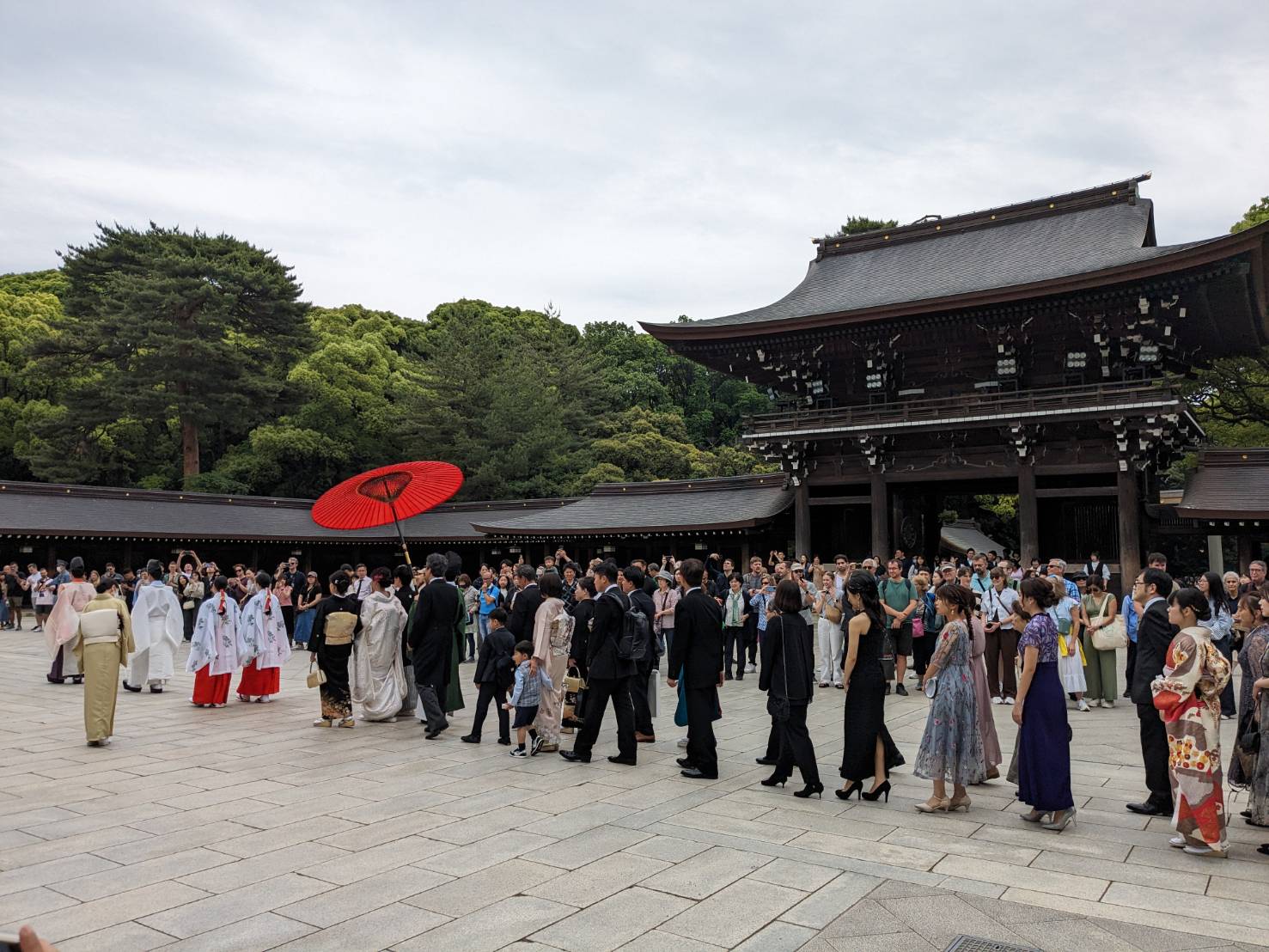Thank you very much to the guests who joined the tour.
The weather was cloudy but the temperature was moderate just as this time of the year.
On this tour we hosted 9 guests from USA, India, Singapore and New Zealand.
We hope everybody enjoyed the tour and conversation with us and other guests. As promised, group photos and snapshots are attached to remember the fun times we had.
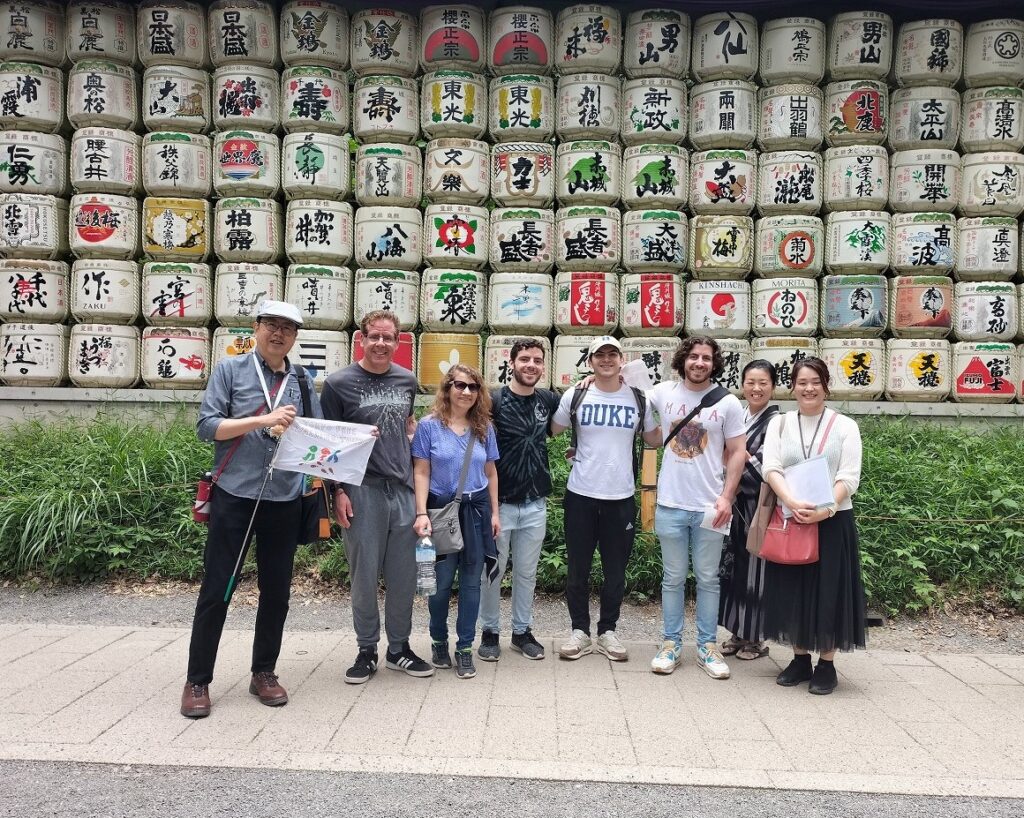
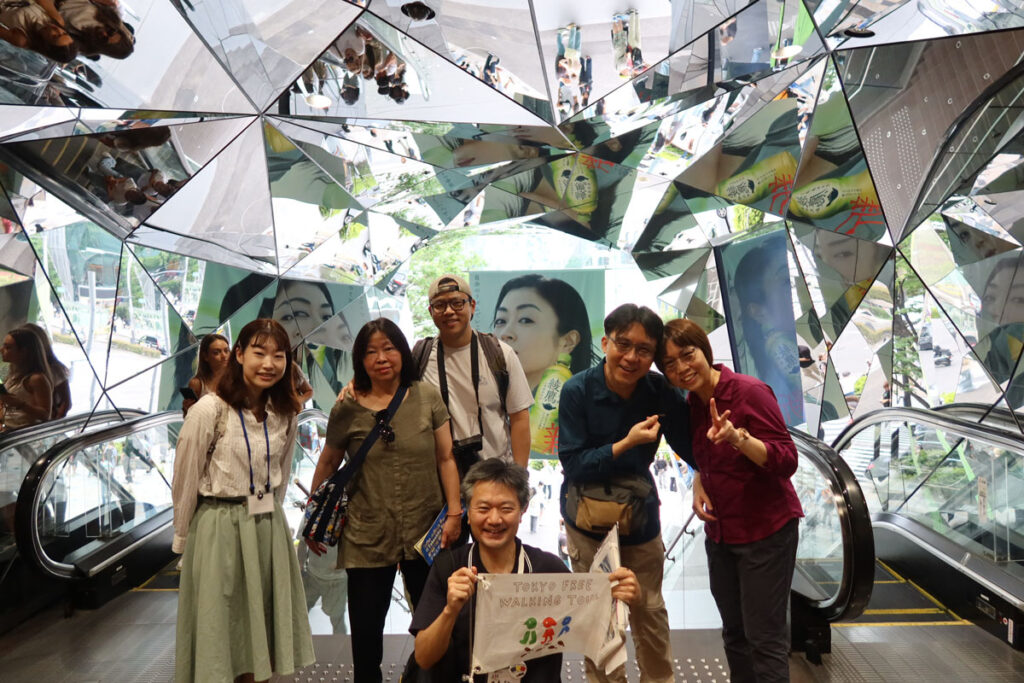
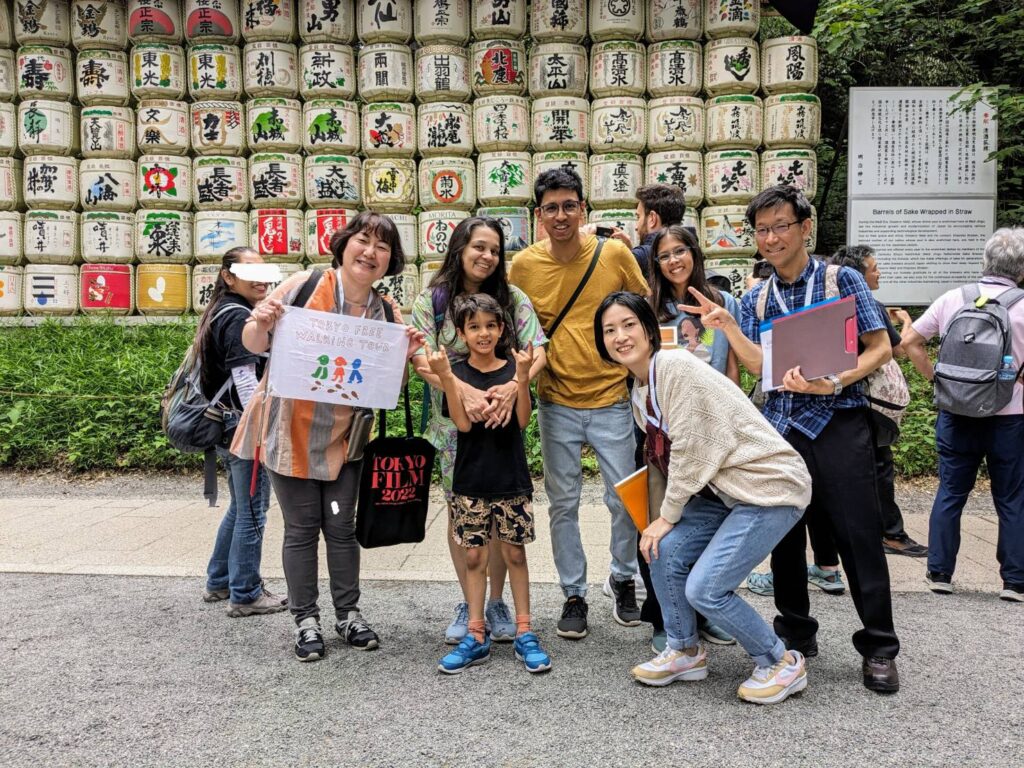
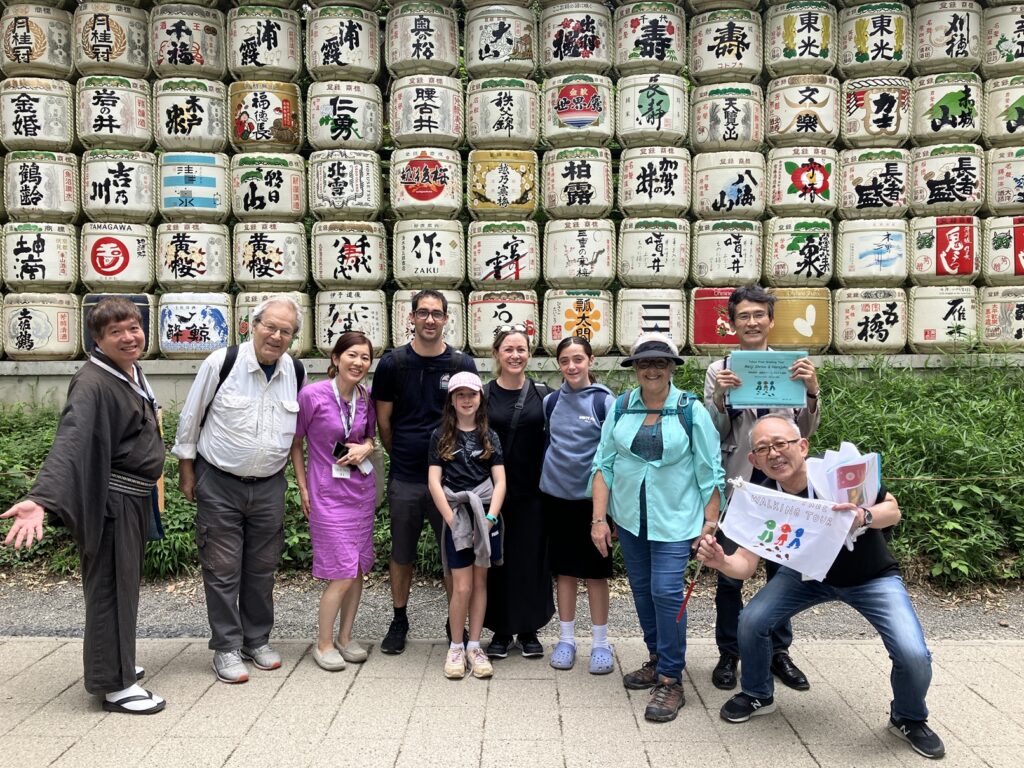
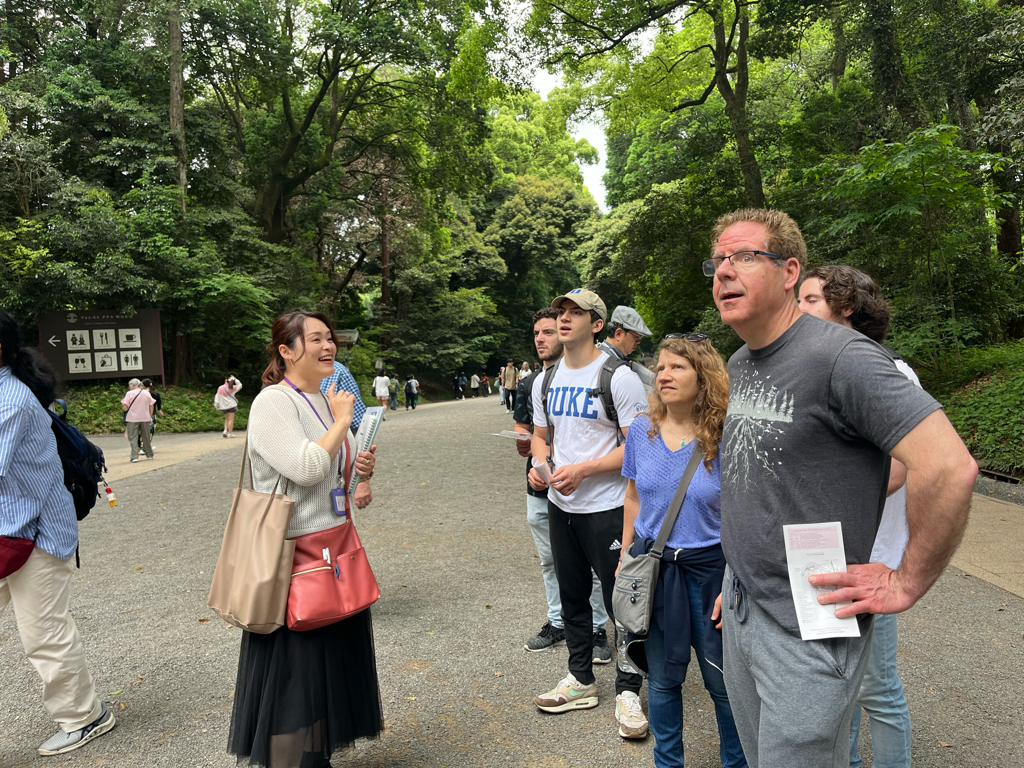
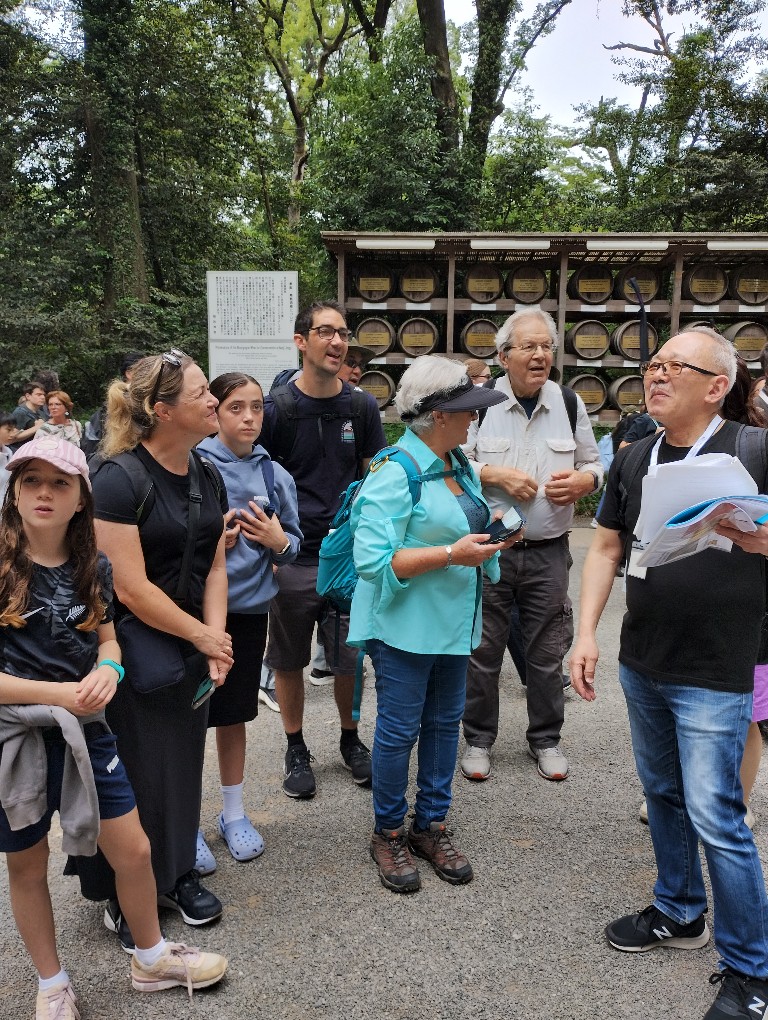
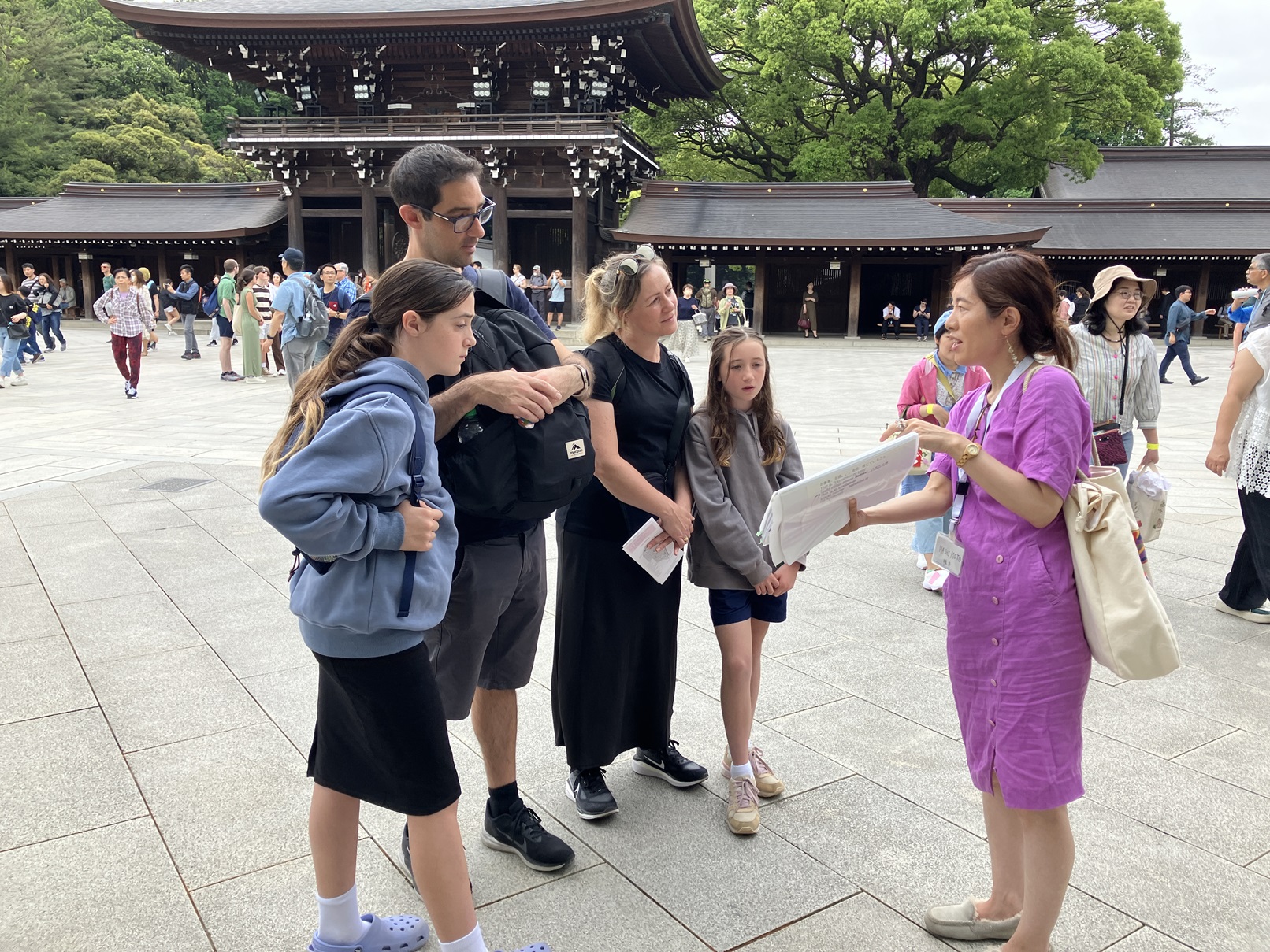
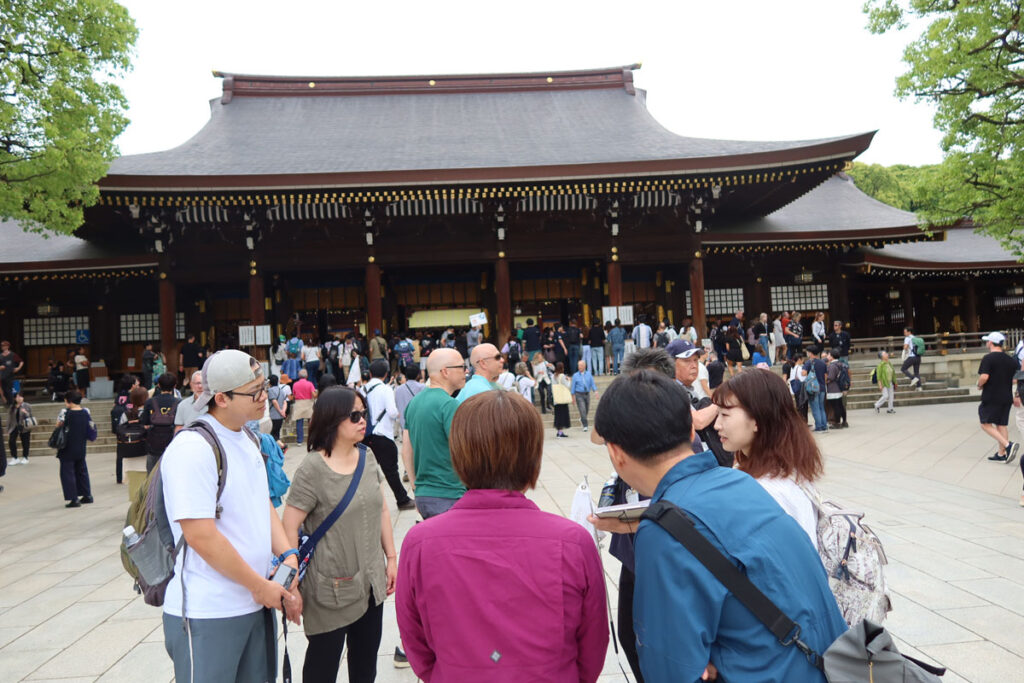
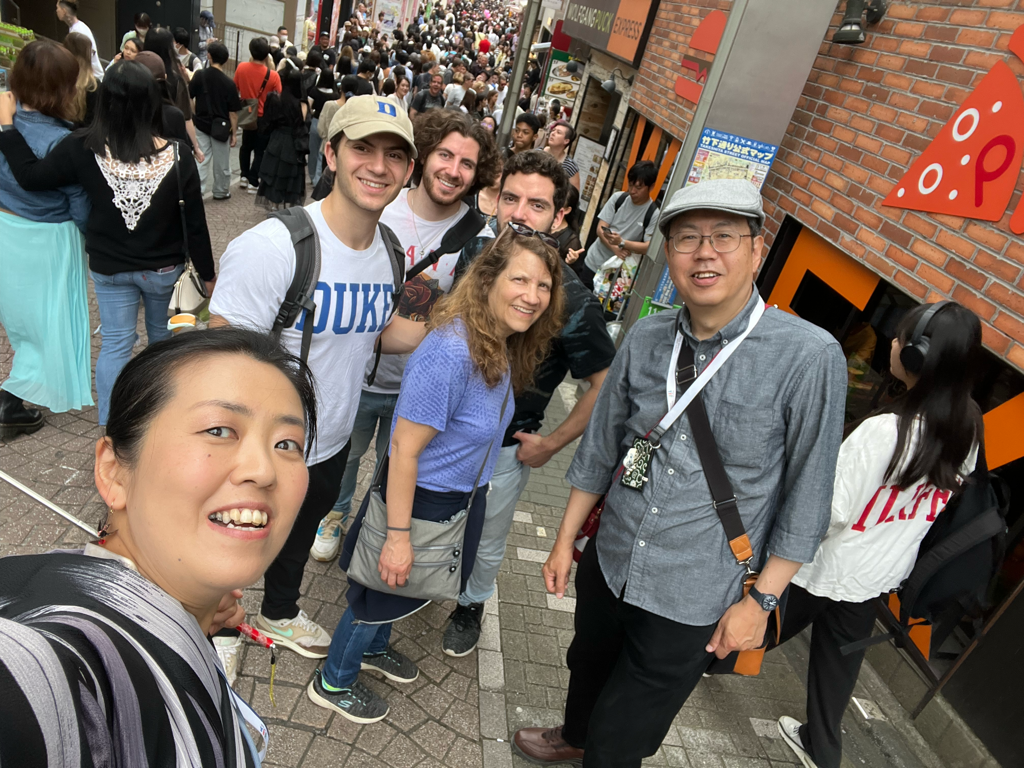
As we explain on the tour, Meiji Jingu shrine is where Meiji Emperor and Empress are enshrined as the divine gods. This follows Shinto philosophy that any dead soul can be a god along with the nature of this world.
Shrines have been the places to make prayer, hold wedding ceremonies, host festivities as well as making wishes to come true by writing the wishes on tablets or papers.
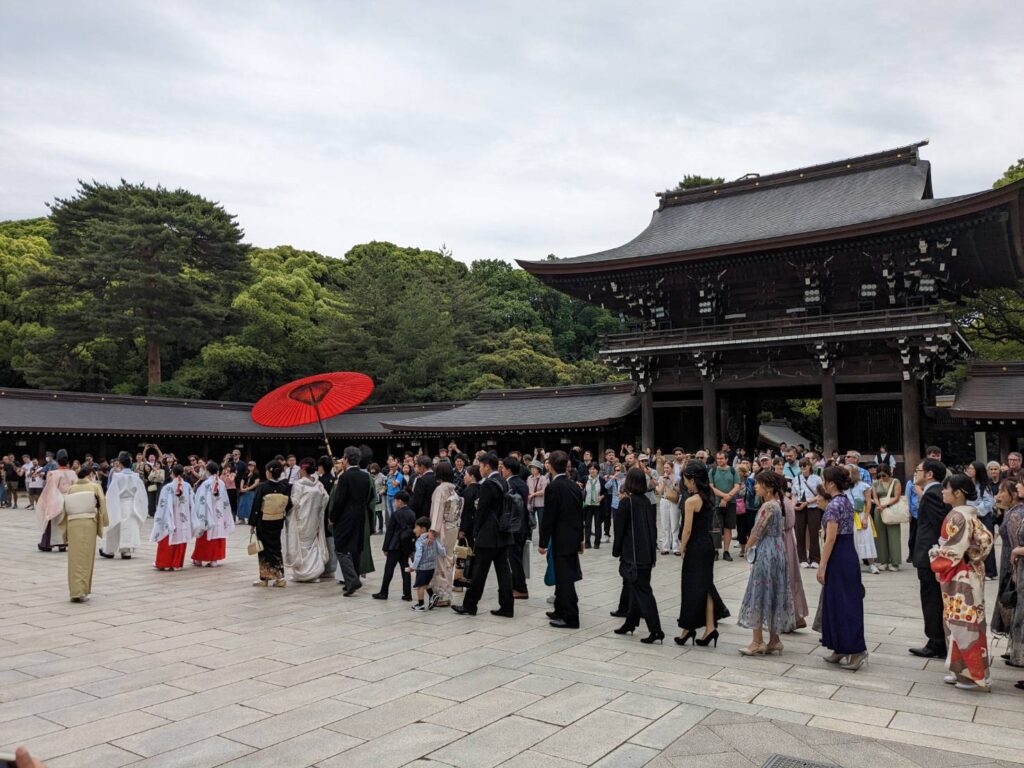
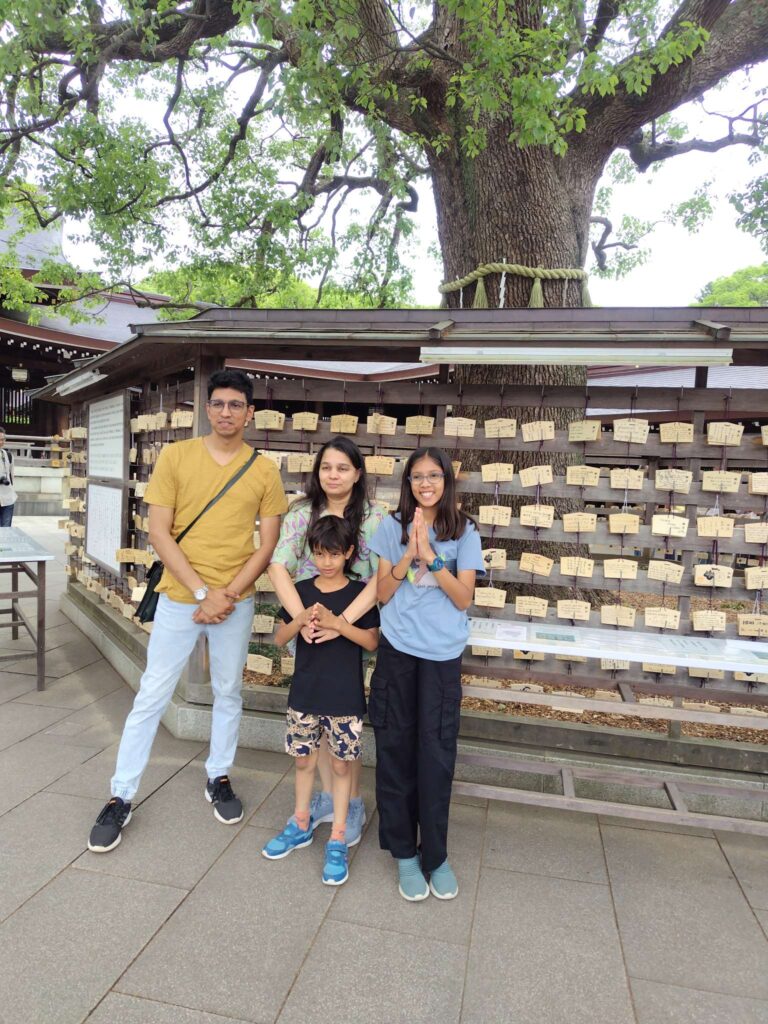
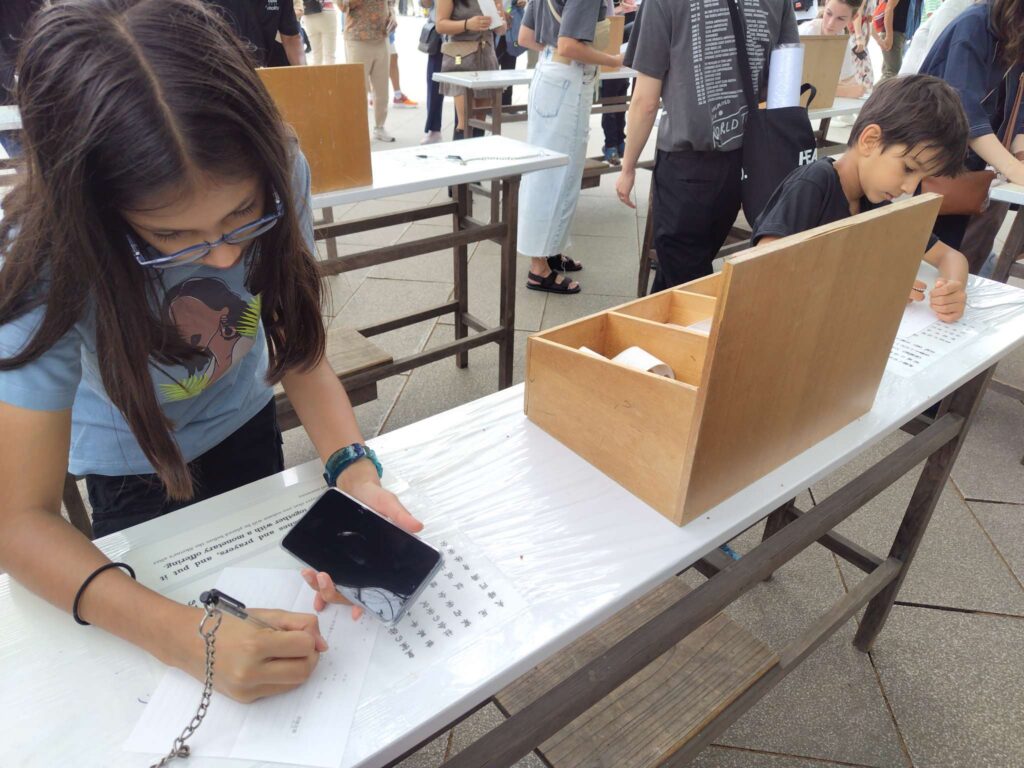
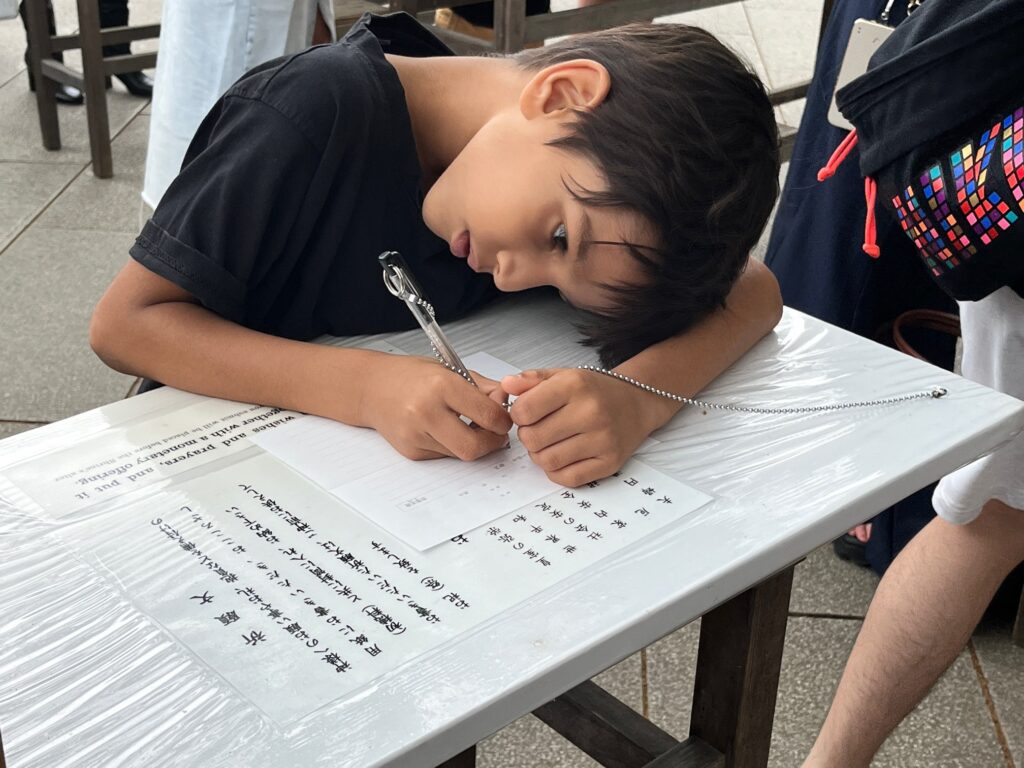
But Shintoism may not be defined as “Religion” like Christianity or Buddhism.
Our guests ask what is Emperor’s religion. Until late 19th century when Emperor had lived in Kyoto, imperial family were Buddhists but in modern time Japan designated Shinto as national religion modeling after British Anglican Church in order to establish the Nation-State. So Emperor has become a symbol of the national Shintoism and a national unity. All the shrines in Japan were consolidated under national Shintoism.
But the imperial constitution effective between the late 19th century and the end of the second world war , guaranteed each national’s religious freedom so Shintoism was set separate from other traditional religions. Rather it was considered nationally recognised festivities or rituals. So people could practice other religions while praying at shrines.
After the second world war, such national Shintoism system was abolished and each shrine became independent among one another. So each shrine has different policies such as whether to hold the same sex couple wedding or not. Some shrines do but Meiji Jingu Shrine does not. At this point Japan does not legalise the same sex marriage so it is debatable but Shinto priests in Japan claim Shintoism does not prohibit such marriage. Shintoism does not have rigid rules.
Japan is a free democratic nation so each one can practice his or her own religion, basically. There are many Buddhist temples and Christian churches in Tokyo. You can even find a Catholic abbey in the center of the city like one in Paris, France.
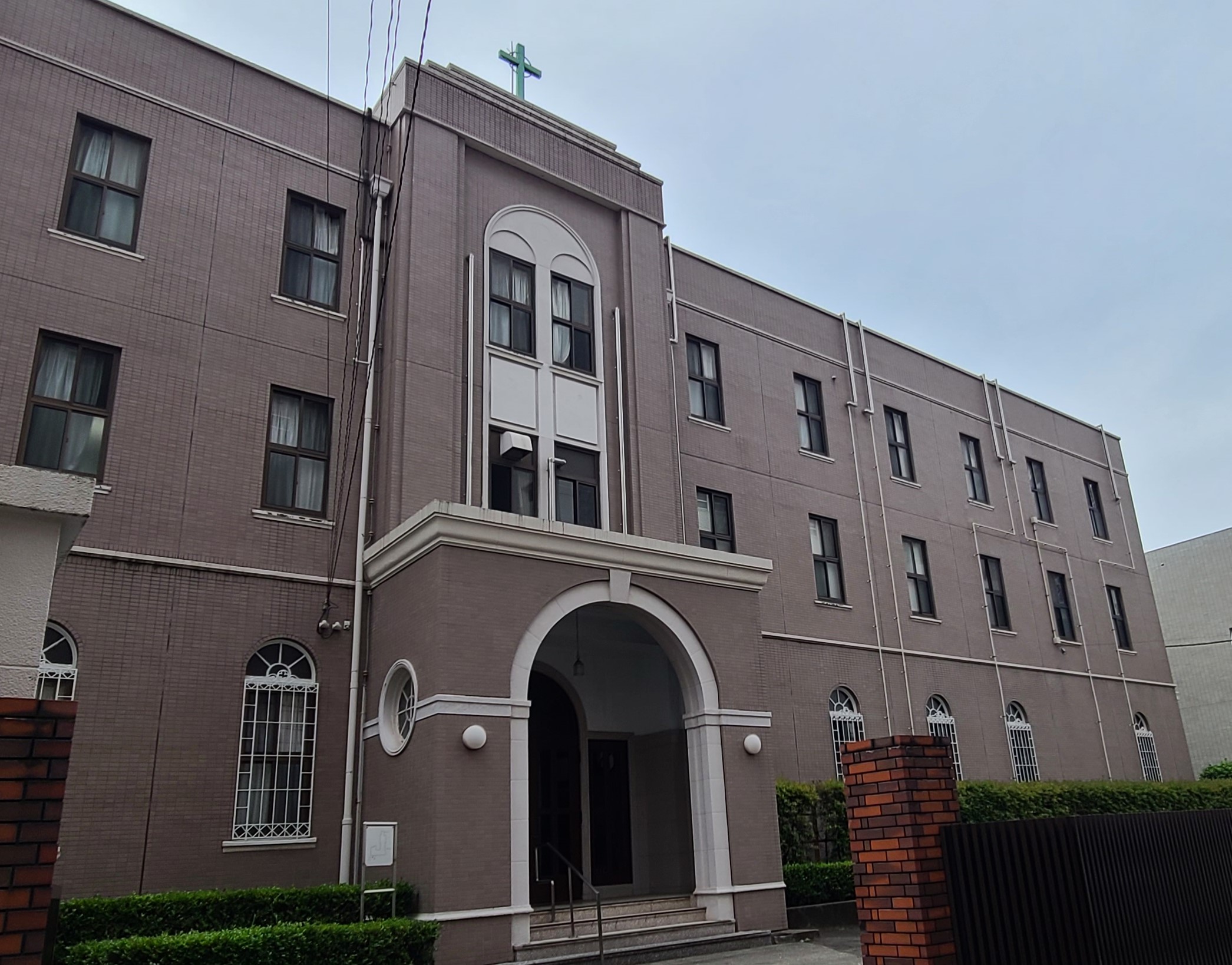
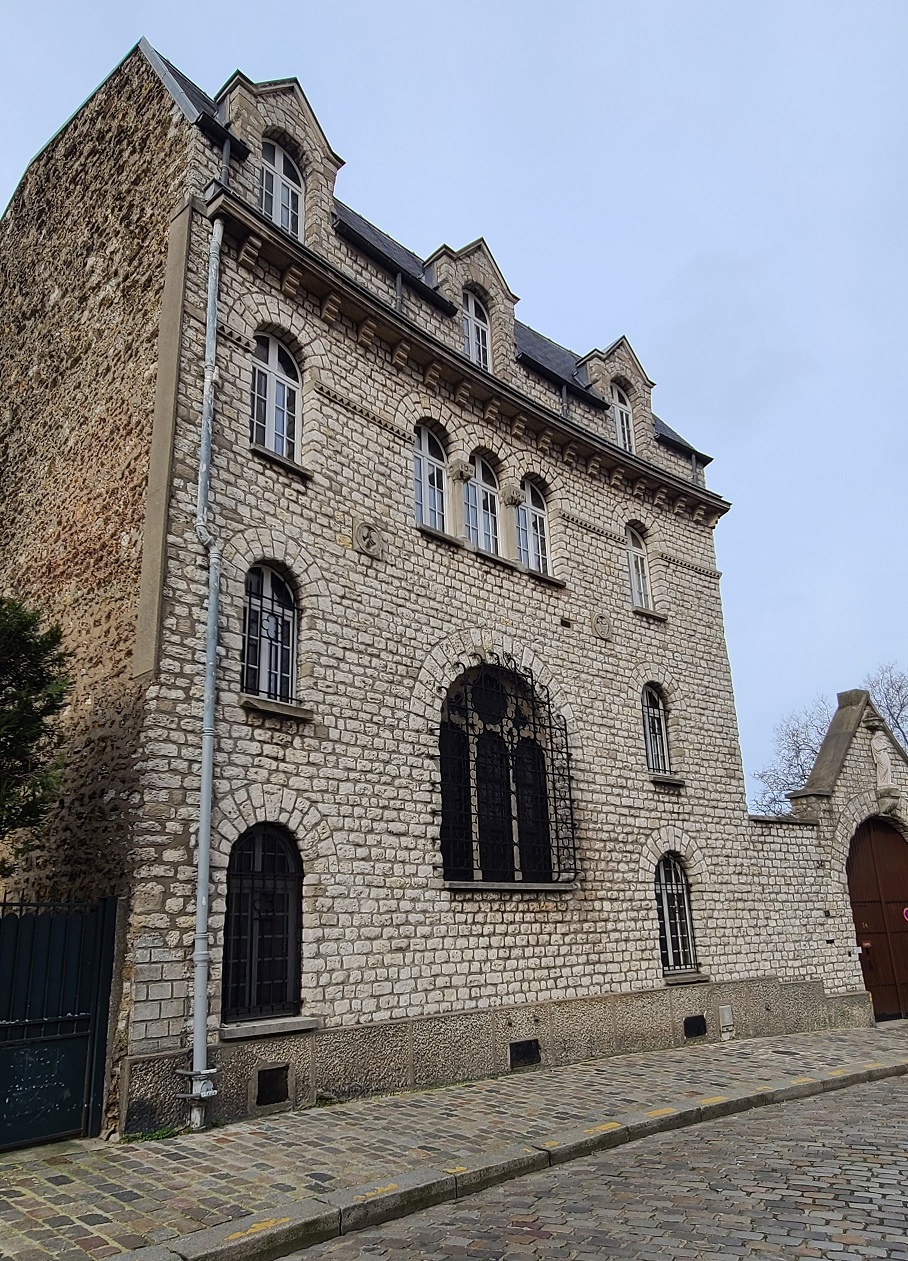
So your religion does not matter in Japan. Be free to visit Shinto shrines, Buddhist temples, Christian churches and so on while your travel in Japan.
Once again, thank you so much for joining us on our tour. We always make efforts to improve our tours and highly appreciate your feedback on our TripAdvisor/Facebook etc. Your comments would makes us happy and give us more strong motivations to keep our volunteer activities. And also we’d be glad so much if you would recommend your family and friends our tour. Hope to see you again at our another tours too, such as Asakusa/Sensoji Temple, Ueno Park, and East Garden of the Imperial Palace.
Posted by Masa

